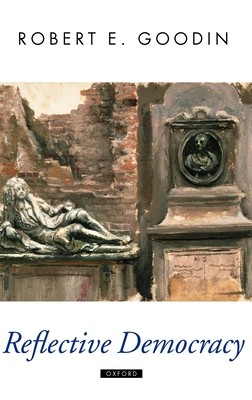
- We will send in 10–14 business days.
- Author: Robert E Goodin
- Publisher: Oxford University Press, USA
- ISBN-10: 0199256179
- ISBN-13: 9780199256174
- Format: 16.5 x 23.9 x 2.1 cm, kieti viršeliai
- Language: English
- SAVE -10% with code: EXTRA
Reviews
Description
Democracy used to be seen as a relatively mechanical matter of merely adding up everyone's votes in free and fair elections. That mechanistic model has many virtues, among them allowing democracy to 'track the truth', where purely factual issues are all that is at stake. Political disputes invariably mix facts with values, however, and then it is essential to listen to what people are saying rather than merely note how they are voting. The great challenge is how to implement that deliberative ideal among millions of people at once. In this strikingly original book, Goodin offers a solution: 'democratic deliberation within'. Building on models of ordinary conversational dynamics, he suggests that people simply imagine themselves in the position of various other people they have heard or read about and ask, 'What would they say about this proposal?' Informing the democratic imaginary then becomes the key to making deliberations more reflective - more empathetic, more
considered, more expansive across time and distance.
EXTRA 10 % discount with code: EXTRA
The promotion ends in 21d.14:07:23
The discount code is valid when purchasing from 10 €. Discounts do not stack.
- Author: Robert E Goodin
- Publisher: Oxford University Press, USA
- ISBN-10: 0199256179
- ISBN-13: 9780199256174
- Format: 16.5 x 23.9 x 2.1 cm, kieti viršeliai
- Language: English English
Democracy used to be seen as a relatively mechanical matter of merely adding up everyone's votes in free and fair elections. That mechanistic model has many virtues, among them allowing democracy to 'track the truth', where purely factual issues are all that is at stake. Political disputes invariably mix facts with values, however, and then it is essential to listen to what people are saying rather than merely note how they are voting. The great challenge is how to implement that deliberative ideal among millions of people at once. In this strikingly original book, Goodin offers a solution: 'democratic deliberation within'. Building on models of ordinary conversational dynamics, he suggests that people simply imagine themselves in the position of various other people they have heard or read about and ask, 'What would they say about this proposal?' Informing the democratic imaginary then becomes the key to making deliberations more reflective - more empathetic, more
considered, more expansive across time and distance.


Reviews